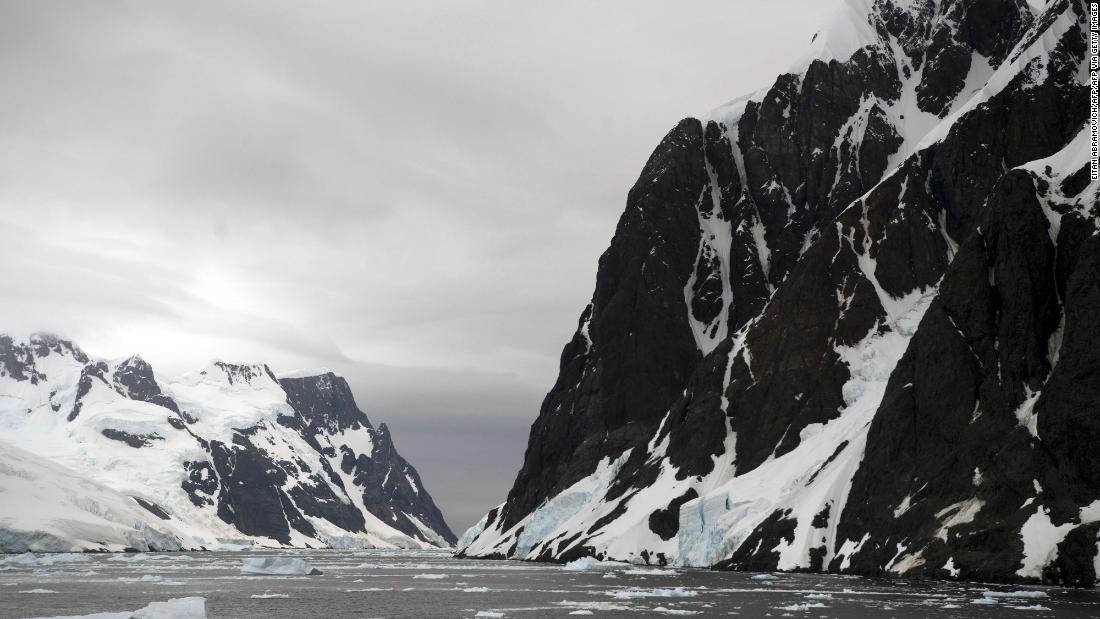How does the UN seek to influence against climate change?
2:55
(CNN) -
The planet is trapping roughly twice as much heat in the atmosphere as nearly 15 years ago, according to an alarming new analysis from NASA and the US National Oceanic and Atmospheric Administration.
Researchers say this is a "remarkable" amount of energy that is already having far-reaching consequences.
“It is an excess of energy that the planet is absorbing,” says Norman Loeb, a NASA scientist and lead author of the study, “which will mean a greater increase in temperatures and greater melting of snow and ice. marine, which will cause the rise in sea level, all of which are of great concern to society.
What is the link of cryptocurrencies to global warming?
The study, published this week in the journal Geophysical Research Letters, found that what is known as Earth's energy imbalance - the difference between the amount of solar energy absorbed by the planet and that radiated into space - roughly doubled between 2005 and 2019. The result was "surprising," the research team wrote.
Earth is trapped twice as much heat as 15 years ago, increasing global warming and melting threads.
Life on Earth could not exist without energy from the sun, but the amount of that energy that is radiated into space is important.
It is a delicate balance that determines the climate of the planet.
The effects of the Earth's energy imbalance
In addition to rising global temperatures, the most obvious effect of an imbalance, Loeb told CNN that "we are going to see changes in atmospheric circulations, including more extreme events like droughts."
advertising
Using satellite data to measure the imbalance, the scientists found that the Earth is gaining more energy than it should and causing the planet to heat up even more, which is also known as a positive energy imbalance.
About 90% of the excess energy from this imbalance goes to the ocean.
And warming ocean temperatures causes acidification that affects fish and other types of marine biodiversity.
When the researchers compared the satellite measurements with data from a global suite of ocean sensors, the results showed a similar trend.
The remaining energy, meanwhile, stays in the atmosphere.
Global warming: sea water becomes more acidic 0:47
The cause of this energy imbalance is undoubtedly due, in part, to man-made greenhouse gas emissions, the researchers report.
It is also affected by some of the positive feedback loops caused by climate change: As the global temperature increases, so does the amount of water vapor in the atmosphere, further increasing the temperature.
Melting snow cover and sea ice - natural reflectors of solar energy - is also declining due to global warming.
A long-term version of "El Niño"
Another contributing factor is the fact that the Pacific Decadal Oscillation - often described as a long-term climate pattern similar to "El Niño" in the Pacific - remained in a very warm phase from 2014 to 2020. Because of this sudden change from a cold phase to a prolonged warm phase, the cloud cover over the ocean decreased, allowing the Pacific Ocean to absorb more solar radiation.
"Man-made change is changing the composition of the atmosphere, as well as fluctuations in weather systems," Loeb said.
Against the backdrop of historic drought and extreme heat in the West, the study warns that the amount of heat trapped by the Earth must decrease, or climate change will continue to worsen.
Loeb described the time period chosen by his team, from 2005 to 2019, as a mere snapshot of what is to come in terms of climate impact, adding that more studies and long-term observations are needed to fully understand the trend. long-term.
"My hope is that the rate at which we are seeing this energy imbalance decreases in the coming decades," Loeb said.
"Otherwise, we are going to see more alarming climate changes."
Global warming Environment












